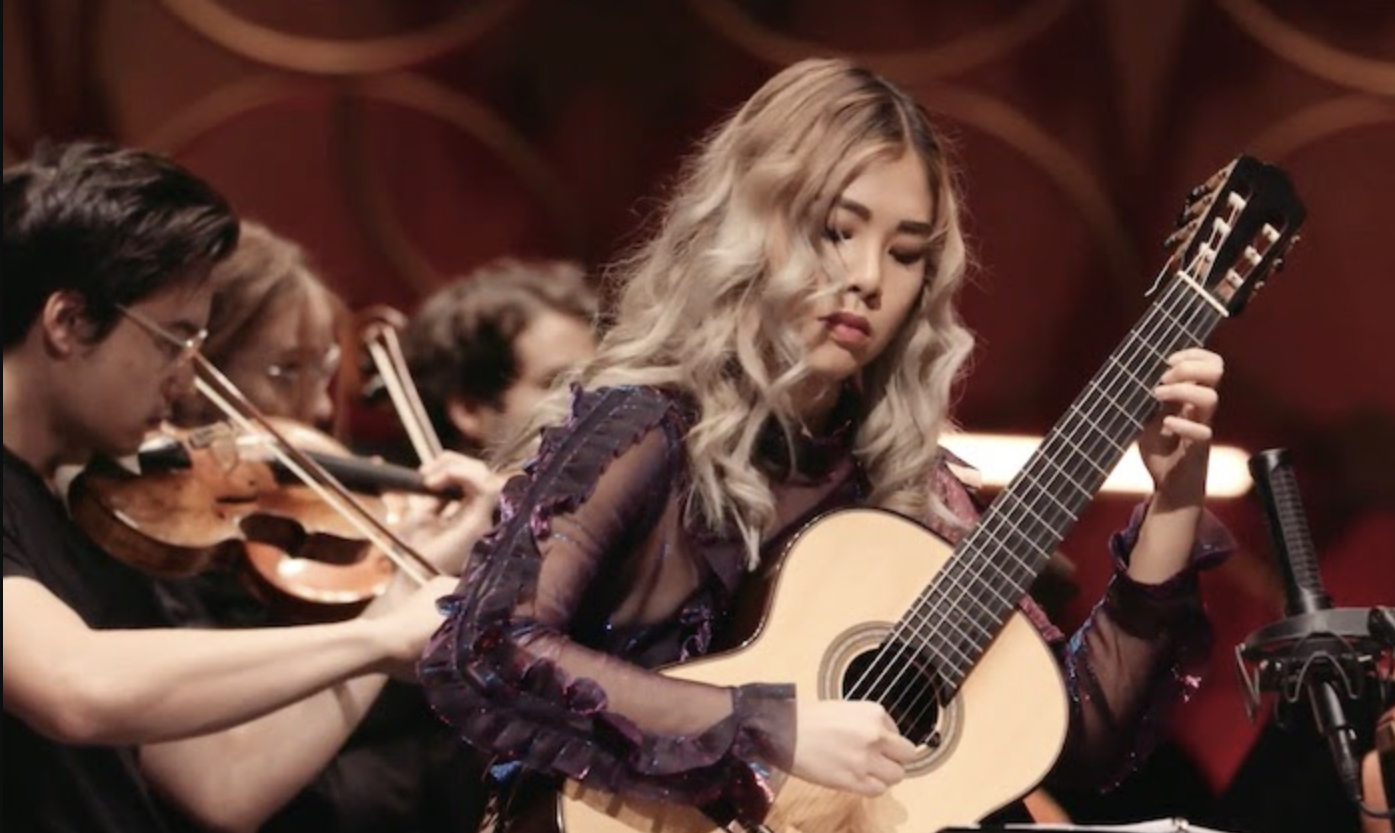by Cait Winston

According to Kim, this emotional relevance comes from the universal emotions that inspire music composition. In a recent Zoom interview, she explained that it is these emotions that makes music so universally relatable, not necessarily the art form itself. “Instead of music being universal, the feelings that we have are very universal. We feel the same things, we feel the same grief, we feel the same happiness, and that’s something we all have.” Kim’s performances create a space in which audiences relate to a wide range of musical styles through the emotions that sparked their composition.
In “Sparked by Frida,” which will be presented at 7:00 pm at the Dodero Center for Performing Arts, Kim reflects on feelings of grief and suffering, inspired by the torment she finds in Frida Kahlo’s paintings.
Kahlo was particularly influential in Kim’s arrangement of Sonata duodecima by Isabella Leonarda, a trailblazing Baroque composer and one of the first female musicians to publish sonatas. “The emotional turmoil I found in Frida’s paintings, I found in her [Leonarda’s] music,” says Kim. In order to create this arrangement of Lenoarda’s work, Kim condensed material that was originally written for much larger ensembles, taking into account figured bass, harmonies, and responses to the melody — while making sure to leave room for some improvisation and ornamentation.
Intense emotions also fuel Kim’s own compositions — she says that when composing, “I always find grief or sadness.” Her two pieces on the July 9th program provide two different interpretations of grief and distress.
Kim wrote Everyone wants a piece of you to depict the feeling of being swallowed by other people’s expectations, and never having time for yourself. “I feel like people were taking pieces of me, and I felt like I was losing my time, losing myself, and losing my soul, and I was very drained,” she explained. This piece utilizes dense electronic sounds to create an overwhelmed sensation, as Kim puts it — the feeling of being “in a panic mode. You can’t think straight, and you’re breathing unevenly.”
For Patty is much more of a “straightforward ballad,” composed in honor of Kim’s friend’s mother, who passed away from COVID last October. “I couldn’t find the right words to console my friend, and I just thought words weren’t enough.” As Kim’s friend is also a guitarist, she found it fitting to offer him consolation and sympathy through a piece of music which he could possess both physically in a score, and eternally in a recording.
Kim says that her overall compositional voice synthesizes all of the styles of music which have impacted her throughout her lifetime, from electronica to string quartets. While her style defies strict categorization in one specific genre, Kim says that her music tends to “lean towards pop.” Kim frequently uses the music production software Ableton, which lets her push the limits of sound frequencies and experiment with a variety of intense textures to effectively communicate her emotions to the listener.
The program will also include Kim’s own arrangement of Frantz Casseus’ Merci Bon Dieu. For Kim, the context of Casseus’ life was very influential in her creation of the arrangement. Casseus was a Hatian guitarist who immigrated to America, and found success in touring with Harry Belafonte. Kim explained that, in addition to a hand injury that inhibited his performance career, his life as a musician was filled with the anguish of injustice, as he encountered many racial barriers. “Black musicians weren’t being respected for their art,” Kim said. “He was creating this very cool classical guitar and Haitian music, but he was only considered a folk musician, not the ‘serious’ classical musician he was trying to be.”
Kim was excited to create an arrangement of Merci Bon Dieu that would honor all the aspects of Casseus’ compositional language. “He can be super classical, and he can combine this jazz and Haitian music.” Kim was sure to honor the composer’s original intentions while bringing out rhythmic and harmonic aspects that spoke to her. “I hope he likes it!” she says.
Kim’s concert will be preceded by a 6:00 panel discussion titled “Frida Kahlo & Beethoven: Disability in the Arts.” Tickets and information can be found here.
Published on ClevelandClassical.com July 6, 2021.
Click here for a printable copy of this article


